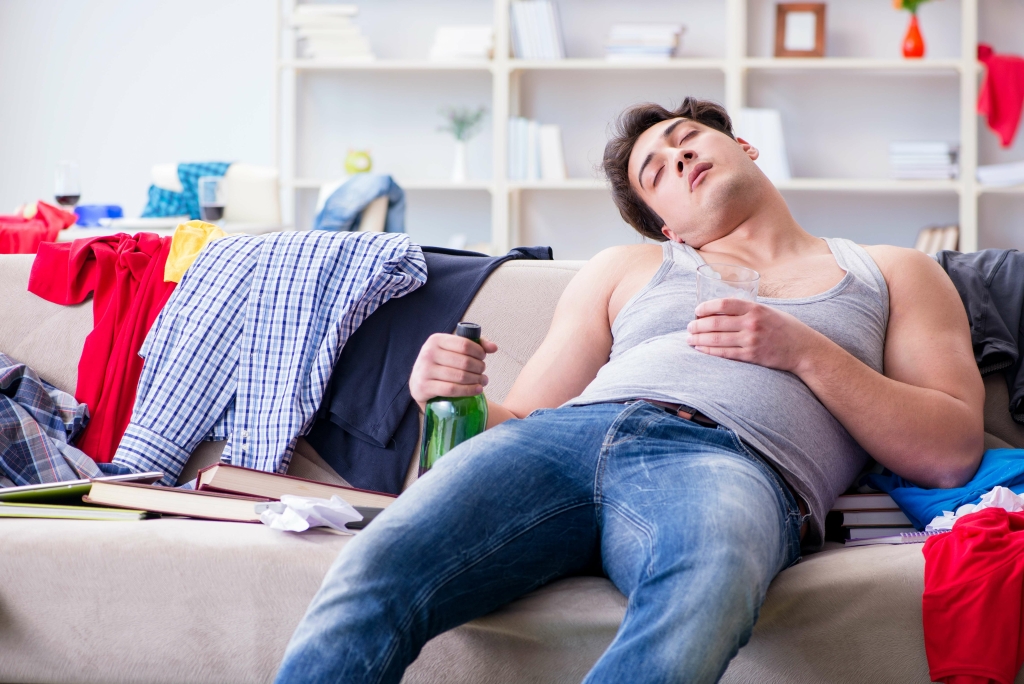Lucky-piggy.com.br – Aposte Sem Parar
Lucky Piggy — Análise unificada e guia completo Contexto inicial Lucky Piggy, desenvolvido pela PG Soft (Pocket Games Soft), adota
Night sweats from alcohol consumption may indicate an issue with alcohol and could be a sign of underlying health problems, including potential risks of long-term alcohol use, such as cancer and liver damage. Even just one drink can cause night sweats, and they can be particularly common in individuals with alcohol use disorder or those who binge drink 5. Anyone with AUD should talk to a doctor before quitting drinking cold turkey. They can refer you to a medical detox program in which you receive withdrawal medications like benzodiazepines and 24/7 medical care and supervision in a hospital setting. This is the safest way to undergo alcohol detox since the medical team is there to prevent complications and treat your alcohol withdrawal symptoms, including night sweats. In addition, if you experience night sweats due to alcohol consumption, it may be a sign of alcohol addiction.
When you experience these issues, it might be time to look more closely at your relationship with alcohol. Persistent sweating is sometimes tied to deeper concerns like regular use or even dependency. Even before you start feeling withdrawal, alcohol can make you sweat a lot when you sleep. When you drink alcohol, especially a lot or close to bedtime, it quickly starts changing how your body works while you sleep, often making you sweat a lot. Your liver, which cleans bad stuff from your body, gets busy breaking down the alcohol.
These programs can provide the necessary support and resources to address alcohol-related issues and help individuals on their path to recovery. Remember that night sweats can also be a sign of an underlying medical condition or lifestyle factor. If you are experiencing frequent or persistent night sweats, it’s important to talk to a healthcare professional to determine the sweating at night after drinking underlying cause and develop an appropriate treatment plan. In some cases, cutting back on or quitting alcohol may be one component of this plan. Experiencing night sweats after drinking alcohol can be both uncomfortable and disruptive to a good night’s sleep.
When you’re allergic to alcohol or have an intolerance to it, your body cannot produce the enzymes needed to break down the toxins in alcohol. This results in alcohol dependence, or alcohol use disorder (AUD), which means the body has become physically dependent on alcohol. No matter how much alcohol you drink, you may experience night sweats when you go to sleep. DTs typically begin 24 to 48 hours after your last drink, but symptoms can worsen quickly, so it’s important to take action as soon as you notice any severe withdrawal symptoms.
In 2010, Aaron transitioned into behavioral health with Caron Treatment Centers. At Caron, Aaron was the Corporate Business Development Director responsible for creating national visibility substantiable revenue growth and training of the business development team. Aaron was also a member of the Senior Leadership Team at Caron Treatment Centers.Aaron joined Alina Lodge as the Director of Marketing and Business Development in August of 2020. Consuming alcohol can fragment the sleep cycle, causing frequent awakenings throughout the night. This disruption prevents you from completing full sleep cycles, leaving you feeling unrested and fatigued the next day.

As the body tries to regulate its temperature, it may trigger sweating as a cooling mechanism. This can manifest as night sweats, particularly when alcohol is consumed close to bedtime. Alcohol can also disrupt normal sleep patterns, which may contribute to night sweats. While alcohol initially acts as a sedative and can help you fall asleep faster, it can negatively impact the quality of your sleep. If you only have night sweats occasionally and they don’t significantly affect your sleep quality, you probably don’t need to be alcoholism too concerned.
Vasodilation, or the widening of blood vessels, is another crucial factor in alcohol-induced night sweats. Alcohol causes your blood vessels to dilate, particularly those close to the skin’s surface. This increased blood flow to the skin can make you feel warm and trigger sweating. During sleep, when your body’s temperature naturally drops, this alcohol-induced vasodilation can disrupt your normal temperature regulation, leading to excessive sweating. Understanding the connection between alcohol and night sweats, as well as recognizing the common symptoms, can help individuals make https://projetojoanadarc.com.br/alcohol-dependence-vs-abuse-how-to-recognize-the/ informed decisions and take appropriate actions if needed. If night sweats become persistent or significantly impact sleep quality, it’s advisable to consult a healthcare professional for further evaluation and guidance.

Andrew’s professional journey is a testament to his leadership and commitment to serving others. He has held impactful leadership positions, including serving as the COO of Volunteers of America OH & IN, CEO of Central Ohio YMCA, and CEO of Greater Waterbury YMCA. Andrew holds a master’s degree in business administration from Harvard University (MBA) and a master’s of management in human services from The Heller School at Brandeis University (MMHS). Marlene is passionate about health equity and reducing disparities to ensure that high-quality care is accessible to everyone. She brings a caring and supportive approach to fostering a positive culture around compliance and continuous quality improvement. Marlene values the partnerships with and involvement of all stakeholders, staff, and guests most in supporting and improving outcomes through quality improvement initiatives.
Doxycycline stays in your system based on factors like dosage, metabolism, health, food intake, and organ function, affecting its duration. Ketamine’s detection in a 12-panel drug test varies by test type and metabolism, with urine tests showing it for 2-4 days and hair for up to 90 days. Marijuana stays in your system longer based on metabolism, usage frequency, body fat, hydration, and test type, with urine tests detecting up to 30 days.
Night sweats from alcohol consumption may indicate an issue with alcohol and could be a sign of underlying health problems, including potential risks of long-term alcohol use, such as cancer and liver damage. Even just one drink can cause night sweats, and they can be particularly common in individuals with alcohol use disorder or those […]
Lucky Piggy — Análise unificada e guia completo Contexto inicial Lucky Piggy, desenvolvido pela PG Soft (Pocket Games Soft), adota
Sous sa licence Curaçao (8048/JAZ2023-025), Sirwin Casino enveloppe nos passions dans une sécurité douce et un répertoire riche de slots,
Sign up to watch our coverage of the latest big events
19a, Olatunde Ayoola Avenue
off Access Road. Anthony Village. Lagos
Cake Flair © 2025 All Right Reserved